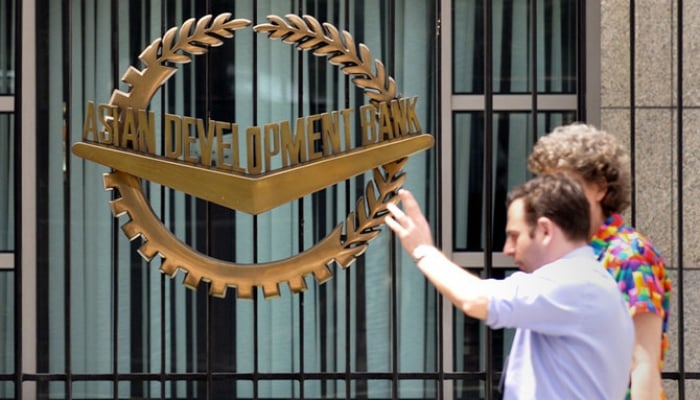ADB to ink $1.5bn loan for Pakistan today
Loan will be disbursed next week which will help Pakistan to boost its decreasing foreign currency reserves
October 21, 2022

- Loan to help boost Pakistan's decreasing foreign currency reserves.
- AIIB likely to approve co-financing of $500 million.
- Pakistan requires $34 billion in the current fiscal year.
ISLAMABAD: The Asian Development Bank (ADB) will finalise a $1.5 billion loan for Pakistan under Building Resilience with Active Countercyclical Expenditure (BRACE) programme today (October 21), The News reported.
It is expected that once the loan is approved, it will be disbursed next week which will help Pakistan to boost its decreasing foreign currency reserves.
Asian Infrastructure Investment Bank (AIIB) is also likely to approve co-financing of $500 million, making the disbursement a total on $2 billion within the ongoing month.
The foreign currency reserves held by the State Bank of Pakistan stood at $7.5 billion on October 14, 2022, in accordance with the official data released by the SBP on Thursday. Such a low level of reserves could hardly meet requirements of less than two months of import coverage.
Pakistan requires $34 billion in the current fiscal year keeping in view the external debt servicing requirement of $22.9 billion and current account deficit projection in the range of $10 to $12 billion. On the other side, the devastating floods compounded the woes of struggling economy.
The consortium of international donors, including the World Bank, ADB, UNDP and EU estimated that Pakistan faced losses of $32.4 billion and it required $16.2 billion for construction costs.
According to an official document, the BRACE program loan of $1.5 billion will help Pakistan to support its response to the worsening macroeconomic crisis compounded by the Russian invasion of Ukraine and devastating floods that have affected nearly 33 million people.
Pakistani authorities had kick-started working on this loan prior to the recent floods. To mitigate the adverse impact of cumulative exogenous shocks, especially on the poor and vulnerable, the government’s countercyclical measures amount to nearly $2.4 billion.
The BRACE program will provide general budget support to the government which will help create fiscal space needed to finance its crisis response and relief measures and vulnerability and facilitate economic resilience to future shocks.
The government has agreed to strong governance measures to ensure sustainability and build capacity, including the establishment of a steering committee of stakeholders to oversee the implementation of relief and response measures; a government-led platform for monthly coordinated discussions on policy dialogue with development partners; submission of quarterly report to ADB and verification of selected disaster management framework indicator through independent survey under ADB technical assistance.











